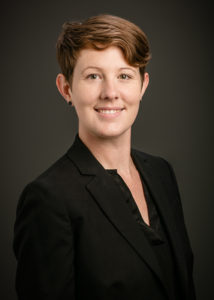Many University TRTRs were shut down in the 1980s & 1990s as student enrollments waned. In the 2000s, student enrollment in nuclear engineering and enthusiasm for carbon-free nuclear energy has rebounded mightily, but no new university TRTRs have been built in nearly 30 years. Simultaneous with this widening gap in hands-on training, unprecedented federal funding to demonstrate and commercialize advanced reactors has been distributed to companies promising a bright future for advanced nuclear energy. But, in this future, who will objectively test these reactors, train their operators, educate their reactor engineers, and improve the technology through innovative experiments?In this talk, I'll suggest that universities remain poised to play many of these roles in the future of next-generation nuclear reactor deployment and university campuses are uniquely suited for early deployments. We at UIUC envision a next-generation university test, research, and training reactor that could underpin advanced reactor commercialization toward national leadership in a clean, sustainable energy future. Our vision for the deployment of a next-generation university TRTR aims to amplify the profound expertise at campuses in research, education, and power production to address the urgent need for advanced reactor prototype testing as well as next-generation research toward integration with carbon-free energy technologies. I will describe a vision of the future in which universities and their research can and must play a significant role in prototype testing next-generation reactors, support commercial licensing and deployment, conduct operations research, drive innovations in associated technologies, and train a next-generation workforce to operate and maintain these next-generation devices.
Dr. Kathryn D. Huff is an Assistant Professor in the Department of Nuclear, Plasma, and Radiological Engineering at the University of Illinois at Urbana-Champaign where she leads the Advanced Reactors and Fuel Cycles Research Group. She is additionally a Blue Waters Assistant Professor with the National Center for Supercomputing Applications. She was previously a Postdoctoral Fellow in both the Nuclear Science and Security Consortium and the Berkeley Institute for Data Science at the University of California - Berkeley. She received her PhD in Nuclear Engineering from the University of Wisconsin-


